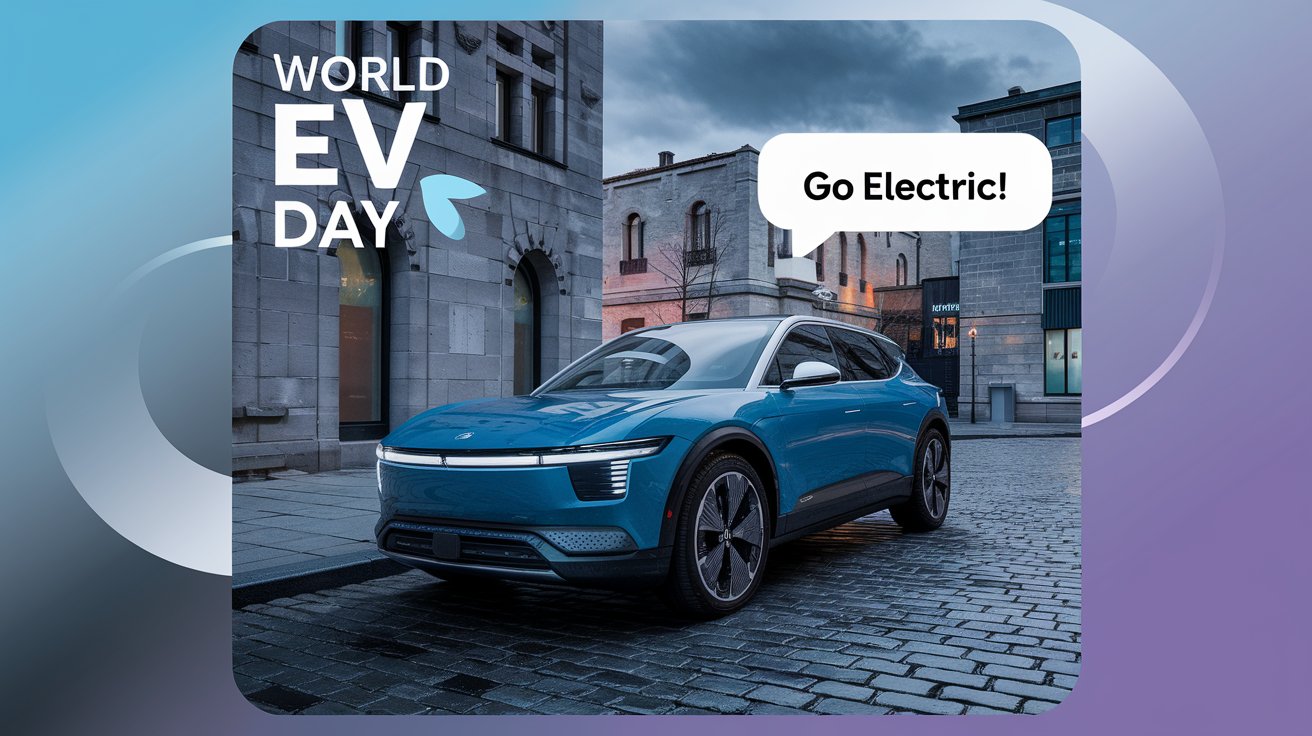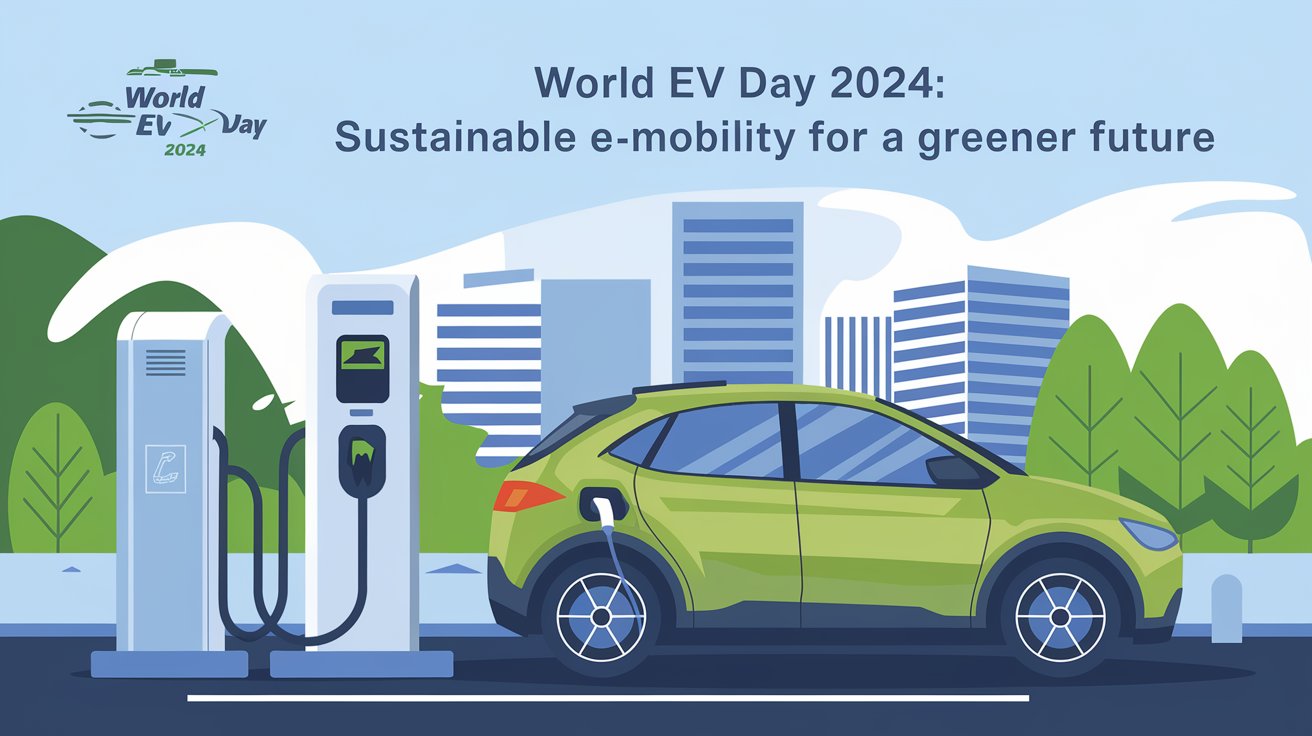
World EV Day, celebrated annually on September 9th, has become a global movement promoting sustainable electric mobility. In 2024, the event will focus on accelerating the transition to electric vehicles (EVs) as the cornerstone of a cleaner, greener future. With climate change, urbanization, and pollution concerns growing, the shift towards EVs has never been more critical. This year, the spotlight is on innovative technologies driving the EV industry forward—and among the most transformative of these technologies is laser technology.

Laser technology, with its precise laser cutting, welding, and marking capabilities, has revolutionized manufacturing across industries. For the mobility sector, it has become an essential tool, especially as the automotive industry transitions towards electric mobility. This blog explores how laser technology is shaping the future of the EV industry, enabling more efficient, reliable, and cost-effective manufacturing processes.
1. The Role of Laser Technology in the EV Industry
Laser technology is known for its precision, speed, and ability to work with a wide range of materials. In the automotive industry, these qualities make it indispensable, particularly in the manufacturing of electric vehicles. From battery production to lightweight body frames, laser solutions like cutting, marking, and welding play a critical role in enhancing the efficiency of production while maintaining the highest quality standards.
2. Laser Cutting: Precision in EV Manufacturing
One of the most significant advantages of laser cutting is its precision and ability to handle complex geometries. For electric vehicles, where components must be compact and lightweight, laser cutting offers unmatched accuracy. Here’s how it contributes:
- Battery Enclosures: EV batteries need robust yet lightweight enclosures to protect them. Laser cutting provides the precision needed to manufacture these enclosures, especially with materials like aluminum and other lightweight alloys.
- Lightweight Components: As manufacturers strive to reduce the overall weight of electric vehicles to improve efficiency, laser cutting allows the precise shaping of materials, ensuring minimal waste and maximum strength.
- High-Speed Production: With the EV market growing rapidly, the need for fast, scalable production is more pressing than ever. Laser cutting systems can operate at high speeds without compromising accuracy, helping meet the increasing demand.

Building an Ecosystem with Lasers Thriving the Automotive and Automobiles in a Sustainable Way
3. Laser Welding: Enhancing Battery and Body Structures
Laser welding has become a game-changer in EV manufacturing, especially in the production of battery modules and vehicle body structures. Here’s why it’s transforming the industry:
- Battery Module Assembly: Electric vehicle batteries consist of hundreds of individual cells that must be connected with extreme precision to ensure safety and efficiency. Laser welding offers a non-contact, high-precision solution for connecting these cells, resulting in reliable, high-quality welds. It ensures that heat-sensitive battery components are not damaged during the welding process.
- Lightweight Body Structures: Electric vehicles need to be lightweight to maximize range and efficiency. Laser welding allows manufacturers to join lightweight materials like aluminum and high-strength steel with minimal distortion and high durability. This results in strong yet lightweight body structures.
- Improved Durability and Safety: The precision of laser welding ensures strong, durable joints, which are crucial for the safety and longevity of electric vehicles. The technique minimizes heat-affected zones, reducing the risk of material fatigue and ensuring a longer lifespan for the vehicle.

4. Laser Marking: Ensuring Traceability and Quality Control
Laser marking plays a crucial role in the traceability and quality control processes of EV manufacturing. In a highly regulated industry like automotive manufacturing, traceability is vital to ensure that each component meets safety and performance standards.
- Component Marking: Laser marking allows manufacturers to engrave unique identification marks, serial numbers, and barcodes on individual components without damaging them. This ensures that each part can be traced throughout its lifecycle, from production to end-of-life recycling.
- Sustainability Marking: Many manufacturers are now marking their components with sustainability certifications, ensuring that the materials used meet environmental standards. Laser marking allows this to be done without harmful chemicals or consumables, making it a more eco-friendly option.
- Tamper-Proof Markings: The permanence of laser marks ensures that vital information cannot be altered or removed, contributing to enhanced security and quality assurance in EV manufacturing.
5. The Future of Laser Technology in EV Manufacturing
As the electric vehicle industry continues to grow, laser technology is expected to play an even more significant role. Future developments in laser cutting, welding, and marking will likely focus on further increasing precision, reducing production time, and minimizing waste.
- Battery Innovation: With the development of new battery technologies, such as solid-state batteries, laser technology will be crucial for producing the precise, compact, and efficient designs needed to advance EVs’ range and performance.
- 3D Laser Printing: Additive manufacturing, combined with laser technology, will allow for the creation of complex, lightweight components that were previously impossible to manufacture with traditional methods. This will further enhance the performance and efficiency of electric vehicles.
- Autonomous Vehicle Manufacturing: As the EV industry moves towards autonomous vehicles, the demand for even more precise manufacturing processes will increase. Laser technology will be critical in producing the intricate components needed for sensors, cameras, and other advanced systems.
Conclusion: Laser Technology Driving the EV Future
World EV Day 2024 not only celebrates the shift towards electric mobility but also highlights the role of groundbreaking technologies that are making this transition possible. Laser technology—through its applications in cutting, welding, and marking—has become a cornerstone in the manufacturing of electric vehicles. As the industry continues to evolve, laser solutions will remain at the forefront, enabling faster, more precise, and more sustainable production processes.
The future of mobility is electric, and laser technology is lighting the way.
By embracing laser technology, the EV industry can continue to drive innovation, sustainability, and performance, creating a cleaner, greener future for all.










